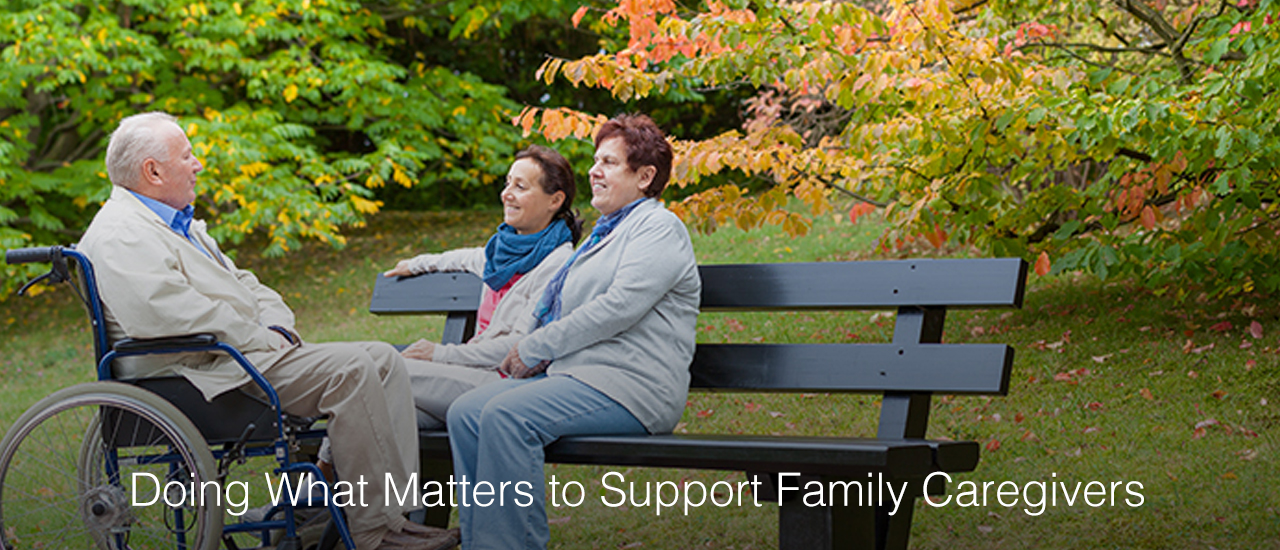
Family Caregiving in Diverse Communities
We’re gaining critical insights that will help us meet the distinct needs of diverse caregivers.
In the next 15 years, people of color will make up one in three older adults in the United States, and the older lesbian, gay, bisexual, and transgender (LGBT) population will grow to at least four million. Caregivers of older relatives, partners, or friends from diverse communities require support that matches their specific needs—especially during crises like COVID-19, when existing inequities are laid bare.
With our support, the Diverse Elders Coalition conducted groundbreaking research into the experiences of caregivers representing Asian Americans, Pacific Islanders, and Native Hawaiians; African Americans; American Indians and Alaska Natives; Hispanics and Latinx people; and the LGBT community. This included:
- A national survey in more than eight different languages that resulted in more than 800 responses from family caregivers from diverse communities.
- More than 35 focus groups held across the country, which provided an opportunity for family caregivers to voice their experiences.
- The Diverse Elders Coalition has conducted surveys and interviews with hundreds of people from different populations. Among their findings:
- Caregivers and patients who belong to historically marginalized demographic groups are more likely to forgo making their wishes known to providers.
- LGBT caregivers report that fewer people help them with caregiving than the average respondent.
- Native American caregivers report a higher number of emergency room visits and hospital admissions.
- A training curriculum developed for health care and social service organizations based on these and other findings will be launched in 2020.
Learn more about the Diverse Elders Coalition’s work to support diverse caregivers.
Home Alone Revisited
We’re revealing new insights about the complex tasks required of family caregivers, and how better to support them.
Family members and friends providing care make it possible for many older adults to live in their homes, rather than an institutional setting, for as long as possible—which is what 76 percent of older people want. These invisible members of our health care system often don’t receive training or support.
We partnered with AARP to produce a series of studies to increase awareness of the needs of caregivers. The first study, Home Alone: Family Caregivers Providing Complex Chronic Care (2012), revealed for the first time that nearly half of caregivers perform complex medical and nursing tasks, with little preparation. In 2019, we followed on that seminal report with Home Alone Revisited, presenting findings of a nationally representative online survey of more than 2,000 caregivers, to better understand the complex tasks they undertake. The updated report provides 10 recommendations to better support family caregivers.
- Home Alone Revisited marked a shift in the perception of family caregivers, moving away from the idea that the care they provide is informal and nonmedical to an understanding that family caregivers perform daily complex medical and nursing tasks.
- New findings suggest that managing pain, incontinence, and special diets are particularly stressful for caregivers. Co-funding from partners has resulted in videos and other tools that can help caregivers perform these tasks.
Read the full Home Alone Revisited report.
Helping States Support Family Caregivers
We’re illuminating the state policy changes needed to better support caregivers.
What could be more important than supporting family caregivers who are helping an older relative, friend, or neighbor? This care can feel like a full-time job, and family caregivers need more support and resources to help them navigate their roles. They may have lost a job and be struggling with unemployment, children returning to the home, or closed day care. State governments need to better understand the needs of family caregivers so they can shape policies to support them.
Seeing a need for a common system for sharing best practices in state caregiving policy, we partnered with the Center for Health Care Strategies (CHCS) to help six states build comprehensive plans to support family caregivers and share their learnings. CHCS worked closely with policymakers in Alabama, Idaho, Iowa, New Hampshire, South Carolina, and Virginia to develop action plans and identify peer-to-peer learning opportunities.
- Alabama is developing recommendations for draft legislation to support respite care services and implement standards and training for respite care workers.
- Idaho is strengthening a partnership between payers and family caregiver support agencies to enhance caregivers’ access to information and services.
- Iowa is streamlining the services and support for family caregivers currently offered through its network of Area Agencies on Aging.
- New Hampshire is developing a more streamlined, consistent process for assessing family caregiver capacity.
- South Carolina is assessing its current family caregiver resources and developing a set of statewide recommendations to support family caregivers.
- Virginia is partnering with community-based organizations and health plans to help care coordinators better support family caregivers.
Read a blog post by CHCS about the goals of the initiative.
